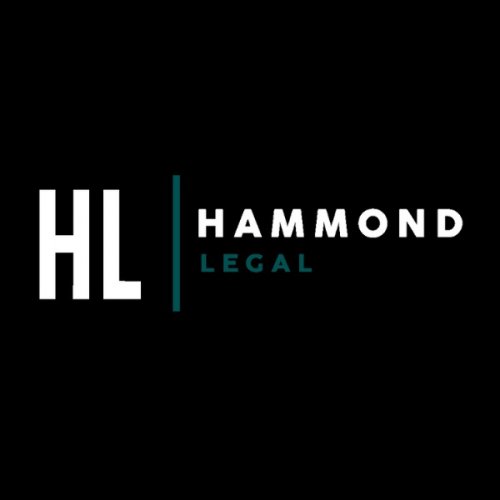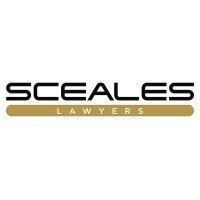Best Commercial Litigation Lawyers in Australia
Share your needs with us, get contacted by law firms.
Free. Takes 2 min.
Or refine your search by selecting a city:
List of the best lawyers in Australia
About Commercial Litigation Law in Australia
Commercial litigation in Australia refers to the process of resolving business-related disputes through the courts or alternative dispute resolution methods. These disputes commonly arise in the context of contracts, business transactions, partnerships, shareholder relationships, trade practices, insolvency, and employment in the commercial sector. The process is governed by a combination of federal and state laws and often involves complex procedural rules and strict timeframes. Commercial litigation aims to protect the legal rights of parties involved in business and ensure fair outcomes in commercial disputes.
Why You May Need a Lawyer
You may require legal assistance with commercial litigation in several situations. Common reasons include breaches of contract, partnership disputes, shareholder disagreements, allegations of misleading and deceptive conduct, debt recovery, intellectual property infringement, unfair competition, and insolvency. A lawyer experienced in commercial litigation can help you assess the merits of your case, advise you on your rights and obligations, draft legal documents, represent you in court or negotiations, and guide you through complex legal procedures to achieve the best possible resolution.
Local Laws Overview
Commercial litigation in Australia is governed by a mix of federal and state laws, including the Corporations Act 2001, Competition and Consumer Act 2010, Australian Consumer Law, and relevant state Supreme Court rules. Key aspects to consider include:
- Jurisdiction: The nature of the dispute determines which court or tribunal will hear the matter. Higher-value or complex disputes typically go to state Supreme Courts or the Federal Court.
- Pre-action requirements: Some claims demand parties attempt dispute resolution before initiating proceedings, such as mediation or negotiation.
- Limitation periods: There are strict time limits within which you must commence proceedings, which vary depending on the type of claim.
- Discovery and evidence: Parties are generally required to disclose relevant documents and evidence to each other, which can be a critical aspect of litigation.
- Costs: The losing party may be ordered to pay some or all of the winning party’s legal costs, which can be substantial.
Frequently Asked Questions
What is commercial litigation?
Commercial litigation is the process of resolving disputes involving business or commercial interests through the court system or other dispute resolution methods.
What types of disputes are covered by commercial litigation?
Common disputes include breaches of contract, partnership and shareholder disputes, debt recovery, intellectual property issues, professional negligence, competition and consumer law matters, and bankruptcy or insolvency issues.
How long does commercial litigation typically take?
The timeline can vary significantly depending on the complexity of the dispute, the jurisdiction, and whether the matter settles out of court. Some disputes may resolve within a few months, while others can take years.
Is it necessary to go to court to resolve a commercial dispute?
No, many commercial disputes are resolved through negotiation, mediation, or arbitration before reaching the courtroom. Courts often encourage parties to explore alternative dispute resolution methods to save time and costs.
What is the "discovery" process?
Discovery is the stage where both parties exchange relevant documents and information related to the dispute. This process can be complex and time-consuming but is important for building your case.
What are the risks of commercial litigation?
The primary risks include significant legal costs, time investment, the uncertainty of the outcome, reputational damage, and possible adverse cost orders if you lose the case.
Can I represent myself in commercial litigation?
While you have the right to represent yourself, commercial litigation is often complex and involves technical legal and procedural requirements. Engaging a specialized lawyer is highly recommended.
How are legal costs determined in commercial litigation?
Costs depend on the complexity of the case, time invested by your lawyers, and court-related expenses. Some lawyers offer fixed or capped fees, while others charge by the hour. Costs orders from the court typically follow the "costs follow the event" principle, with the losing party paying some of the winning party's legal costs.
What is mediation?
Mediation is a form of alternative dispute resolution where an independent mediator helps disputing parties reach a compromise outside the courtroom. It is often faster and less expensive than litigation.
What should I do if I am served with legal documents?
If you receive a claim, statement of claim, or any other legal document, seek legal advice immediately. Do not ignore the documents, as failing to respond within the required timeframe can have serious legal consequences.
Additional Resources
For further guidance or information on commercial litigation in Australia, you may find the following resources and organizations helpful:
- Federal Court of Australia
- State Supreme Courts (e.g. Supreme Court of New South Wales, Supreme Court of Victoria)
- Australian Securities and Investments Commission (ASIC)
- Australian Competition and Consumer Commission (ACCC)
- Australian Small Business and Family Enterprise Ombudsman
- State-based Law Societies and Legal Aid Commissions
Next Steps
If you are involved in a business dispute or are considering commercial litigation, here are some practical steps to follow:
- Gather all relevant documents and information regarding the dispute.
- Seek early legal advice from a qualified commercial litigation lawyer to understand your rights, options, and possible outcomes.
- Consider alternative dispute resolution methods such as negotiation or mediation before commencing formal legal proceedings.
- Act promptly, as legal time limits apply to most types of commercial claims.
- Keep detailed records of communications and actions taken in relation to the dispute.
Taking informed and timely action will help protect your interests and improve your chances of achieving a favourable resolution in commercial litigation matters.
Lawzana helps you find the best lawyers and law firms in Australia through a curated and pre-screened list of qualified legal professionals. Our platform offers rankings and detailed profiles of attorneys and law firms, allowing you to compare based on practice areas, including Commercial Litigation, experience, and client feedback.
Each profile includes a description of the firm's areas of practice, client reviews, team members and partners, year of establishment, spoken languages, office locations, contact information, social media presence, and any published articles or resources. Most firms on our platform speak English and are experienced in both local and international legal matters.
Get a quote from top-rated law firms in Australia — quickly, securely, and without unnecessary hassle.
Disclaimer:
The information provided on this page is for general informational purposes only and does not constitute legal advice. While we strive to ensure the accuracy and relevance of the content, legal information may change over time, and interpretations of the law can vary. You should always consult with a qualified legal professional for advice specific to your situation.
We disclaim all liability for actions taken or not taken based on the content of this page. If you believe any information is incorrect or outdated, please contact us, and we will review and update it where appropriate.
Browse commercial litigation law firms by city in Australia
Refine your search by selecting a city.















